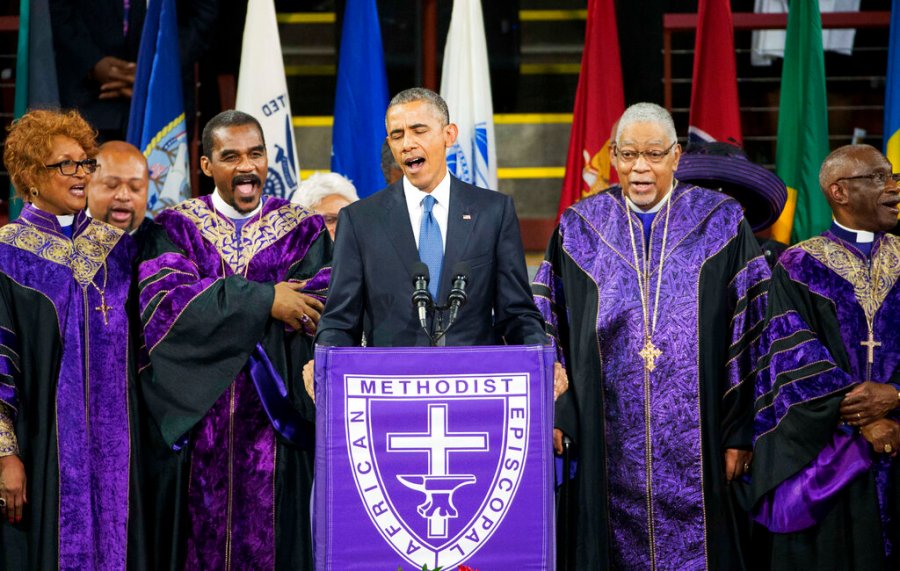As we look at another New Year’s Day, it’s a good time to reflect on a song that unites rather than divides us: the Rev. John Newton’s hymn “Amazing Grace.” The hymn first appeared in Newton’s New Year’s Day sermon in 1773, 252 years ago. One of the greatest hymns of all time, it has been part of countless U.S. gatherings, both religious and non-religious. You might say it has become our national hymn.
The story behind the hymn is as amazing as the hymn itself. Newton was a sailor, but his “character issues” got him transferred to a slave ship, where he became a ruthless slave trader. But a major storm at sea shook him to his core and got him reflecting on his life and the state of his soul, leading him to become a Christian.
Not long after, he quit slave trading and began studying theology, eventually becoming an ordained minister in the Church of England and taking a church in Olney, England. It was there that he wrote the self-reflecting hymn.
An important feature of “Amazing Grace” is that it is embraced by all kinds of people from all walks of life — Christians who regularly attend church and non-Christians who never enter one. Even people from other religious faiths can be moved by the words and music.
You can hear the hymn in churches of all denominations. But you can also hear it played on bagpipes at a military or first-responder funeral. The hymn was sung during the civil rights movement of the 1960s, sometimes led by singer Fannie Lou Hamer.
National Public Radio’s Samatha Balaban’s excellent story on the history of “Amazing Grace” reveals that singer Judy Collins did an impromptu rendition of the hymn at a 1969 meeting of war protesters in New York City.
As Collins reportedly explained, “He [Collin’s producer, Mark Abramson] said, you know, I think you should sing something because everybody is sort of frothing at the mouth here, and something could break out that’s physical. So I sang ‘Amazing Grace’ because I knew that everybody would know a little bit of the song. And it calmed everybody down.”
She later recorded the hymn, which has become an iconic version that still inspires.
While some may consider “America the Beautiful” as our national hymn, I think we should consider it to be “Amazing Grace” because it’s so widely used in times of spiritual solace and deep reflection.
Is there another hymn that has been so passionately performed by vocalists as varied as Mahalia Jackson, Elvis Presley, Diana Ross, Willie Nelson, Ray Charles, Aretha Franklin, Randy Travis, Andrea Bocelli and … wait for it … Steven Tyler? Oh, and we can’t forget when President Barack Obama sang it in 2015 at a eulogy for one of the victims of the Charleston, S.C., church shooting.
Another amazing fact is that Newton was a Calvinist and infused his Calvinist theology into “Amazing Grace.” In the first stanza “saved a wretch like me” reflects the Christian view that man is a fallen creature who can do nothing to save himself. By contrast, the prevailing sentiment today is that man is basically good. And yet all of those who sing the hymn have to voice the words “wretch like me.”
The next line reads, “I once was lost but now am found.” Notice that the verb is passive — not “I found it,” but I “am found.” That implies the Calvinist view of the sovereignty of God in salvation — that God must reach out to the individual first, because the sinner, left to himself, neither can nor will respond to the God of the Bible.
The second stanza stresses God’s forgiving grace, another key point among protestants, evangelicals and especially Calvinists: “How precious did that grace appear the hour I first believed!”
And finally, the third stanza highlights the strong belief in the trustworthiness of the Word of God — “The Lord has promised good to me, His word my hope secures.” — a sentiment that has fallen out of favor in many parts of the country.
Perhaps the genius of “Amazing Grace” is that it stresses the key elements of Christian theology without ever mentioning Jesus or the word Christian. In seven stanzas, the word “God” appears only twice. Of course, in Newton’s 18th century England, most people would have claimed to be a Christian, even though many didn’t live like it.
In our day, many people find the doctrines of evangelical Christianity, and especially Calvinism, offensive. Yet “Amazing Grace” has the power to make us solemnly reflect on our lives, trials and blessings without being offensive. That’s an amazing story.
Merrill Matthews is a public policy and political analyst and the co-author of “On the Edge: America Faces the Entitlements Cliff.” Follow him on X@MerrillMatthews.

